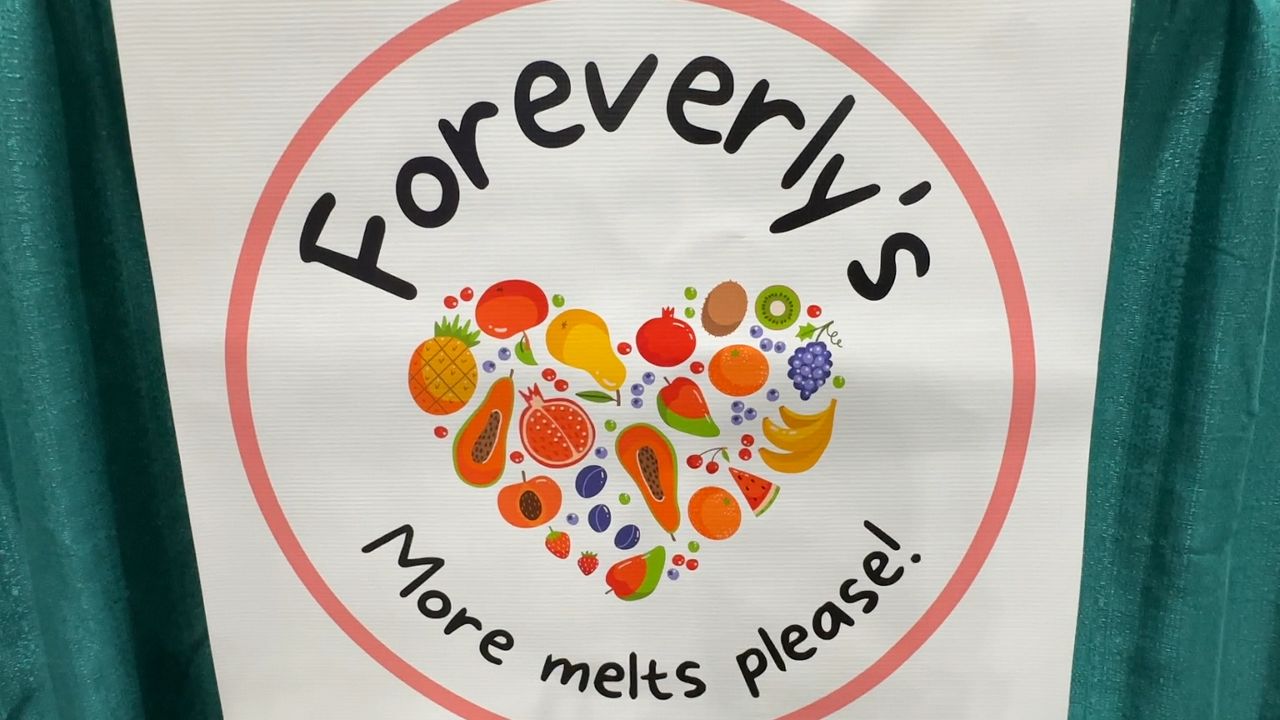When we think of advanced technologies like AI and robotics, we often view them as things that can improve phones, computers or cars, however, they can be essential in many different industries. At the New York State Innovation Summit hosted by FuzeHub, which was attended by more than 500 businesses, two of them, Iambic and Foreverly’s, stand out.
“We offer AI-tailored shoes for those who struggle to find a shoe that fits them,” said the co-founder of Iambic, Raza Hassan.
“Foreverly’s is a frozen treat manufacturer, so we make frozen treats with just fruits and vegetables,” said Foreverly’s founder Melissa Sciba.
FuzeHub is a nonprofit that supports manufacturing companies. Throughout the two-day summit, you saw robots and different manufacturing companies that we often associate with advanced tech. But they can also help with delicious treats and comfortable sneakers.
“When someone places an order, we direct them to provide three images of their foot, along with a comfort assessment about what works for them,” Hassan said. “Our machine-learning models take this information around their images and comfort assessment to then custom fit the shoe.”
Iambic is using artificial intelligence to build shoes tailored to each specific person. Finding a comfortable shoe has become challenging. A 2018 study by the National Institute of Health found up to 72% of people wear shoes that don’t fit their feet properly, potentially leading to foot disorders.
“Shoe manufacturing is a fusion of both science and art, and you need to tackle both of them,” he said. “Iambic’s AI platform has six machine-learning models running simultaneously. This covers the whole range of shoe manufacturing.”
Sciba was inspired to create Foreverly’s after a struggle of finding healthy treats for her daughter, Everly.
“There’s a lot of junk, there’s a lot of processed foods. And so we started Foreverly’s in the hopes to bring something that is unique and fun but also healthy and nutritious to the market,” she said.
According to the Centers for Disease Control and Prevention (CDC), 50% of children under 5 years old don’t eat vegetables every day, and 33% don’t eat fruit daily. Producing her product by hand, Sciba’s looking for ways to improve her workflow efficiency.
“Here, we’re trying to see, there’s a lot of robotics companies, there’s a lot of manufacturing components to what you see here at this conference, to see if there’s anything out there that we can use in the future,” said Sciba.
As advanced technology continues to become more and more prominent, businesses small or large in any industry are starting to reap benefits.
“What’s important to us is, again, to make sure we’re maintaining the integrity of our product, and I think with some of these advances that we’re seeing today, there’s hope that there’s options for us today,” she said.
“Looking forward to other industries to use the AI-based models, the newest technologies in improving the experience of their clients and their customers,” said Hassan.

